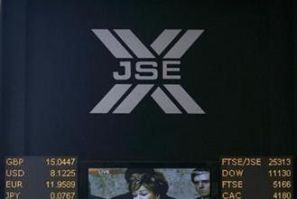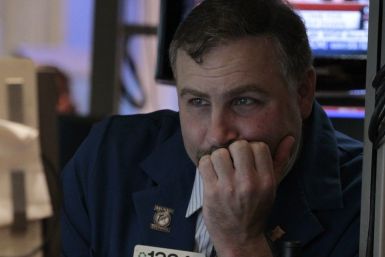From dawn in Tokyo to dusk in New York on Friday, fear lifted gold to a record high -- its fifth such day in a row -- and boosted silver, too, as the world's investors succumbed to the accumulated effect of one emerging danger after another.
South Africa's National Union of Mineworkers members at Impala Platinum on Friday rejected a revised pay rise offer from the world's second largest producer of the precious metal and will refer the dispute to arbitration.
Inflation in Morocco jumped to 1.8 percent in July from a year earlier, exceeding the average forecast for 2011 for the first time this year, due mainly to a surge in food prices, the state High Planning Commission (HCP) said on Friday.
South Africa's National Union of Mineworkers said Anglo American Platinum (Amplats), the world's largest platinum producer, again raised its wage offer on Friday, trying to head off a strike that could cause a jump in global prices of the precious metal.
An exploding monetary indicator suggests that there could be a flight from European banks into America.
South Africa's National Union of Mineworkers members at Impala Platinum on Friday rejected a revised pay rise offer from the world's second largest producer of the precious metal and will refer the dispute to arbitration.
Mutual funds and other vehicles that purport to help investors fight inflation are the most popular new investment strategy being adopted by corporate retirement plans, according to a new survey released on Thursday.
The U.S. stock market had a mini-meltdown on Thursday as fears about a second recession in the United States and Europe rattled investors.
New U.S. claims for unemployment benefits rose more than expected last week, according to a government report released Thursday that suggested hiring in August was steady but not robust.
The global demand for gold will remain high for the rest of the year, the World Gold Council said Thursday in a report.
Here are five of the most important reasons that are pressuring U.S. stocks on Thursday.
Three months ago, with the Federal Reserve nearing the end of its second major stimulus program and inflation pressures on the rise, Albert Edwards' bond market view stood out from the crowd.
The number of Americans claiming new jobless benefits rose last week and consumer prices increased at the fastest pace in four months in July, highlighting the challenges facing the Federal Reserve.
Gold rallied to its second record high in a week on Thursday, driven by growing investor unease over the outlook for the U.S. economy after data showed an unwelcome pickup in inflation, and over the lack of resolution to the European debt crisis.
The number of Americans claiming new jobless benefits rose last week and consumer prices increased at the fastest pace in four months in July, highlighting the challenges facing the Federal Reserve.
Shares of exchange-traded funds back by gold and silver rose in premarket trading Thursday as the U.S. government reported a higher-than-expected increase in inflation and an increase in jobless claims.
Consumer prices rose faster than expected in July as gasoline rebounded sharply, but a moderation in underlying price pressures backed the Federal Reserve's view of a low inflation environment.
A record-high Swiss franc and soaring raw material and energy costs pummeled cement maker Holcim's
U.S. wholesale prices outside of food and fuel rose at the fastest pace in six months in July as costs for tobacco and light trucks jumped, but weak consumer demand was seen keeping inflation in check at the factory gate.
U.S. wholesale prices outside of food and fuel rose at the fastest pace in six months in July as costs for tobacco and light trucks jumped, but weak domestic demand was seen keeping inflation pressures in check.
Core producer prices rose at their fastest pace in six months in July on strong tobacco and light truck costs, though weak domestic demand was seen keeping inflation pressures under control.
Core producer prices rose at their fastest pace in six months in July on strong tobacco and light truck costs, though weak domestic demand was seen keeping inflation pressures under control.
Pages





























